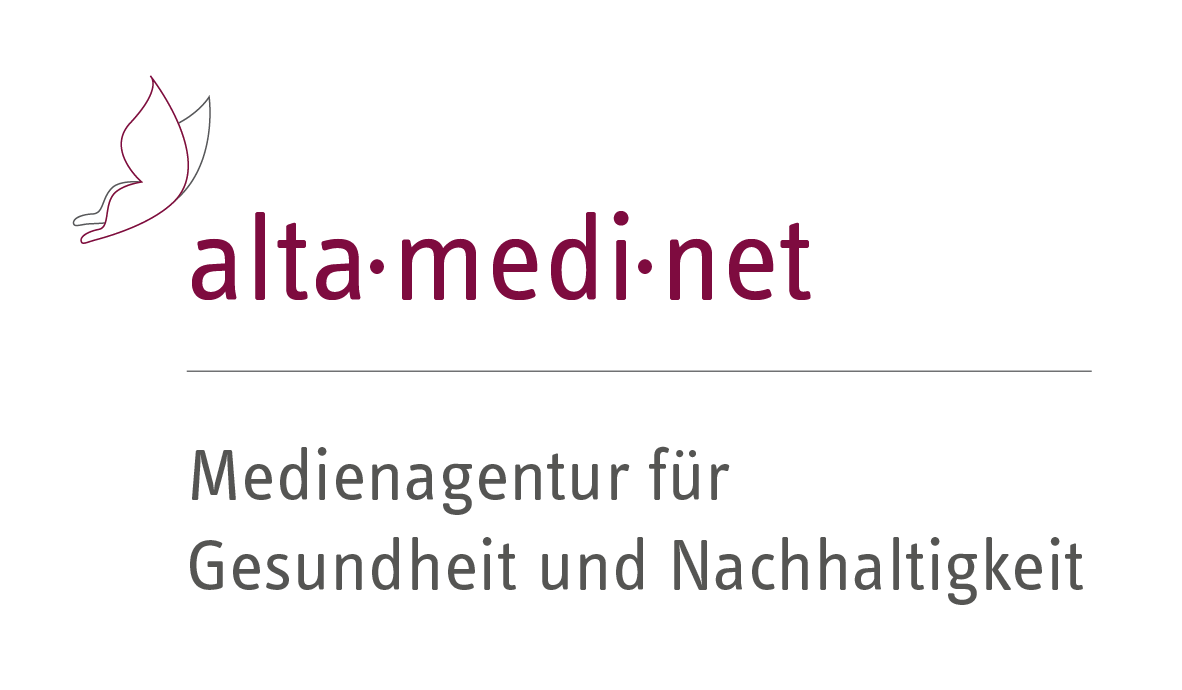

altamedinet GmbH

Baden-Württemberg, Germany
September 2022
Web portals
Service with Minor Environmental Footprint
Austria,
Germany,
Netherlands The,
Switzerland
The heart of altamedinet's work is authentic marketing for companies in the naturopathic health, organic and sustainable sector. Our specialty is medical marketing, especially the marketing of dietary supplements. Our competencies range from online marketing, SEO, performance marketing for online shops to communication concepts and medical writing, from corporate design to sustainable packaging. We work with enthusiasm for clients whose values we share. Together we develop your brand, show what makes your ideas unique and how your products and services create added value for your customers. Authenticity becomes the key currency. Since the company was founded in 2003, it has been important to us to live structures in which personal life is compatible with work. People should have the opportunity to develop personally through their work. The absence of hierarchies, open cooperation, accepting colleagues as they are create the basis for this. The team spirit, which demands and promotes independent thinking and acting, is the basis for well thought-out, forward-looking services - for our customers and our employees.
Overall B Impact Score
Governance 16.4
Governance evaluates a company's overall mission, engagement around its social/environmental impact, ethics, and transparency. This section also evaluates the ability of a company to protect their mission and formally consider stakeholders in decision making through their corporate structure (e.g. benefit corporation) or corporate governing documents.
What is this? A company with an Impact Business Model is intentionally designed to create a specific positive outcome for one of its stakeholders - such as workers, community, environment, or customers.
Workers 30.2
Workers evaluates a company’s contributions to its employees’ financial security, health & safety, wellness, career development, and engagement & satisfaction. In addition, this section recognizes business models designed to benefit workers, such as companies that are at least 40% owned by non-executive employees and those that have workforce development programs to support individuals with barriers to employment.
Community 26.2
Community evaluates a company’s engagement with and impact on the communities in which it operates, hires from, and sources from. Topics include diversity, equity & inclusion, economic impact, civic engagement, charitable giving, and supply chain management. In addition, this section recognizes business models that are designed to address specific community-oriented problems, such as poverty alleviation through fair trade sourcing or distribution via microenterprises, producer cooperative models, locally focused economic development, and formal charitable giving commitments.
Environment 7.9
Environment evaluates a company’s overall environmental management practices as well as its impact on the air, climate, water, land, and biodiversity. This includes the direct impact of a company’s operations and, when applicable its supply chain and distribution channels. This section also recognizes companies with environmentally innovative production processes and those that sell products or services that have a positive environmental impact. Some examples might include products and services that create renewable energy, reduce consumption or waste, conserve land or wildlife, provide less toxic alternatives to the market, or educate people about environmental problems.
Customers 4.5
Customers evaluates a company’s stewardship of its customers through the quality of its products and services, ethical marketing, data privacy and security, and feedback channels. In addition, this section recognizes products or services that are designed to address a particular social problem for or through its customers, such as health or educational products, arts & media products, serving underserved customers/clients, and services that improve the social impact of other businesses or organizations.